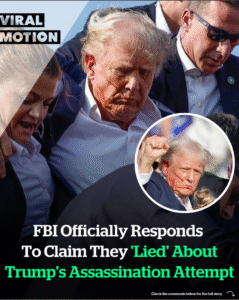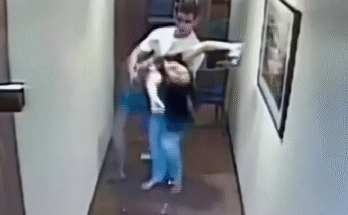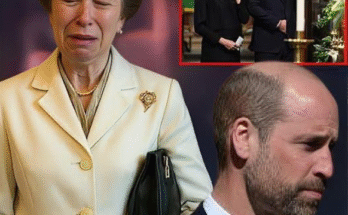On November 14, 2025, the FBI publicly refuted explosive allegations that it had misled the public about Thomas Crooks, the man who fired at Donald Trump during a rally in mid-2024. The claims—most prominently promoted by commentator Tucker Carlson—suggested that the bureau had downplayed or denied Crooks’s online footprint. According to Carlson, newly discovered social media posts and Google Drive content demonstrated a far more extensive digital presence than the FBI had admitted. In response, the FBI issued a firm, unequivocal statement: “This FBI has never said Thomas Crooks had no online footprint. Ever.”
The Incident and Investigation
To set the stage, Thomas Crooks, a 20-year-old from Pennsylvania, carried out an assassination attempt on July 13, 2024, by opening fire from a rooftop during a Trump rally in Butler, Pennsylvania. Crooks missed the target, but the attack left one attendee dead, two others wounded, and struck Trump in the ear. Secret Service agents on the ground shot Crooks in return, killing him. The FBI later took over or supported a wide-ranging investigation into Crooks’s background, motive, and planning.
In its initial public statements, the Bureau acknowledged the seriousness of the act, calling it an assassination attempt. However, the FBI also maintained uncertainty about Crooks’s motive. According to their account, while they had conducted substantial investigative work, they could not conclusively tie his act to a broader ideological network or coherent group.
Carlson’s Claims: A Contradictory Narrative
Tucker Carlson reignited controversy by alleging that the FBI’s public narrative was misleading. Carlson claimed to possess access to Crooks’s Google Drive, as well as social media posts and other files, which allegedly painted a far more detailed picture of Crooks’s radicalization. He argued that the bureau had understated or misrepresented what it knew:
-
Online Activity: Carlson insisted that Crooks was not a digital ghost — instead, he actively posted, commented, and engaged in political discourse on platforms like YouTube and Google Drive.
-
Mischaracterization: According to Carlson, the FBI had cast Crooks as a “lone wolf” with no meaningful digital footprint in order to simplify or obscure the motive or prevent scrutiny into how he came to plan an attack.
-
Potential Motive: By downplaying Crooks’s online engagement, the FBI may have avoided airing a more complex or politically sensitive narrative about his radicalization, Carlson suggested. He asked: if Crooks was more networked or ideologically motivated, why wouldn’t the bureau reveal as much?
These are serious charges. If true, they point to selective disclosure, possible obfuscation, and a willingness to shape the story in a way that avoids deeper political or institutional consequences.
The FBI’s Rebuttal: “We Never Denied His Footprint”
The FBI’s public response was sharp and direct, delivered through its Rapid Response communication channels. Key elements of their defense include:
-
Denial of “No Footprint” Claim
The bureau said it never claimed Crooks had no online presence. The assertion that they “lied” on that central point was, by their own statement, false. -
Scope and Scale of the Investigation
The FBI emphasized that their probe was massive, thorough, and multifaceted. According to their account:-
Over 480 personnel from the FBI were involved in the investigation.
-
Investigators examined 13 digital devices seized from Crooks.
-
Nearly 500,000 digital files were reviewed.
-
They collected data from 25 online accounts, investigating Crooks’s internet activity in depth.
-
The bureau conducted close to 1,000 interviews and collected roughly 2,000 tips from the public.
-
-
Conclusion of “Lone Actor”
Based on their review, the FBI publicly maintained that Crooks acted alone. While he had some online engagement, the bureau said he did not disclose a clear, organized plot or ideological network to associates. According to their findings, he never shared his assassination plan with anyone. -
Unclear Motive
Despite the depth of their investigation, the bureau still emphasized that Crooks’s exact motive remains unconfirmed. They repeated that there was no conclusive evidence of a broader plot, nor of a cohesive ideological group directing him.
Why This Debate Matters: Key Implications
The dispute between Carlson and the FBI points not just to a single case, but to far broader issues about trust, transparency, and how authorities manage politically sensitive investigations.
-
Public Trust in Law Enforcement
If people believe the FBI misled them on such a high-profile attack, it risks serious erosion of confidence in a crucial institution. Trust can be fragile, especially when the public feels critical details have been withheld or downplayed. -
Political Weaponization
This case is inherently political. Carlson’s coverage frames the FBI not just as inept, but as intentionally deceptive — a serious charge. Whether one sees this as partisan posturing or legitimate oversight, it feeds into longstanding debates about how national security is entangled with political narratives. -
Transparency vs. Operational Security
The FBI’s mission requires balancing transparency with protecting investigations. Revealing too much — especially about intelligence it collects online — risks compromising future operations or revealing tradecraft. Yet critics argue that the public has a right to know, especially given the stakes of an assassination attempt. -
Radicalization in the Digital Age
If true, Carlson’s claims could underscore a troubling trend: that young individuals may be radicalized through online platforms, and yet intelligence agencies might not fully disclose how much they’re able to trace or understand that process. Understanding Crooks’s online footprint could matter enormously for future prevention. -
Accountability Mechanisms
This controversy also tests the mechanisms through which law enforcement is held accountable. How does the public or Congress verify or challenge the FBI’s claims? What standards of disclosure or after-action reporting should apply after an attack with such political implications?
Possible Scenarios and Outcomes
Given these tensions, several potential paths forward could shape how this unfolds:
-
Congressional or Independent Inquiry: Lawmakers or watchdogs might demand a deeper look at the investigation — asking for more detailed disclosure about what was found, what was deemed inadmissible, and what remains unexplained.
-
Media Scrutiny: Journalists might try to corroborate Carlson’s claims independently, seeking any leaked or publicly available versions of Crooks’s files or posts.
-
Legal Challenges: If any family, or victims, or even government oversight bodies conclude that the FBI misled the public, there could be legal pressure for more transparency or even policy reform.
-
Policy Revisions: This case might lead to changes in how agencies communicate about politically sensitive investigations, or how much of digital evidence is publicly disclosed after threats or violent acts.
Bottom Line
-
The Claim: Tucker Carlson says the FBI lied by denying — or minimizing — Thomas Crooks’s online presence, thereby obscuring his true motives and possibly a broader ideological framework.
-
The FBI’s Response: The bureau strongly refutes that narrative, insisting they never claimed Crooks had no digital footprint, and casting their investigation as exhaustive: nearly half a million files reviewed, dozens of online accounts analyzed, scores of interviews conducted.
-
The Core Issue: Even now, the FBI says Crooks’s motive remains unclear, and they maintain he acted alone. That said, questions linger about why certain aspects of his online life were not more prominently disclosed.
-
Broader Stakes: The controversy cuts into deeper debates over institutional transparency, radicalization, political influence, and public trust in law enforcement — especially when high-profile political figures are involved.
In short: the FBI has officially denied lying; it claims its investigation was massive, detailed, and serious; and it insists that its public statements about Crooks’s digital life were accurate, even as critics like Carlson continue to demand more answers. The tension between these accounts highlights broader questions about how we understand and oversee security in the digital age.


